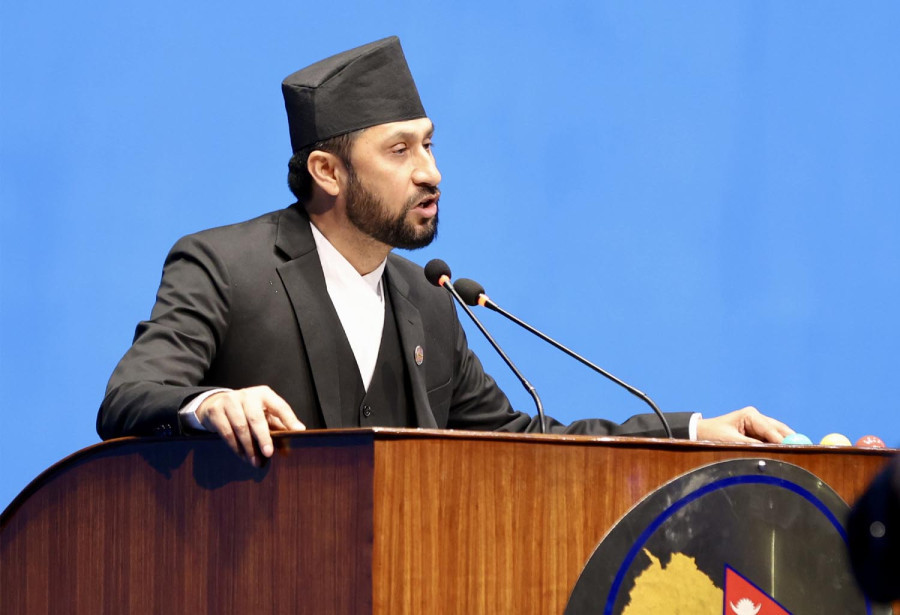Editorial
Off the rails
Deputy PM and Home Minister Lamichhane’s Parliament speech on Sunday set a dangerously low bar for decorum.
After weeks of uncertainty, things had started to appear a touch clearer from Saturday evening. A meeting of top leaders from major political parties—both ruling and opposition ones—agreed to end the House deadlock by forming a parliamentary committee to probe the cooperative scam with links to Deputy Prime Minister and Home Minister Rabi Lamichhane. The leaders formed a taskforce of four second-rung leaders to prepare terms of reference for the probe panel.
While defining the jurisdiction of the parliamentary committee, the task force member from Lamichhane’s Rastriya Swatantra Party even became ready to list the names of the cooperatives from where Lamichhane had allegedly received money. Whether to specifically mention Lamichhane’s name while defining the committee’s jurisdiction remained the major bone of contention and the members were trying to find a meeting point. In the meantime, the main opposition Nepali Congress became ready to allow Home Minister Lamichhane to address the House. For weeks, Lamichhane had been arguing that it was injustice to bar him from speaking in Parliament, thus depriving him of a chance at clarification. As per the understanding, Lamichhane addressed the House.
Unfortunately, Lamichhane presented himself in an utterly irresponsible way, spending most of his time slinging mud at opposition lawmakers, and the Congress General Secretary Gagan Thapa in particular—in fact at all those who were asking for a probe against him. He threw caution to the wind and tore parliamentary decorum to shreds. Had he presented himself in a responsible way and had he really wanted to use the opportunity to clear the old deadlock, his Sunday’s speech in the House could have been a turning point. Alas! It was just the opposite. He further provoked the opposition and spoiled the situation that was headed in a positive direction. The crux of his over half-an-hour-long lecture was that “if you all [leaders from opposition parties] have for so many years engaged in various wrongdoings, why should I be punished for following the same corrupt path?”
He disappointed many of those who reckoned that the main opposition was doing Lamichhane injustice by depriving him of a chance to speak out on the allegations leveled against him. Instead of explaining his case based on facts, figures and documents, he threatened to reopen old cases in which opposition leaders were allegedly involved. While issuing such threats, he seemed to forget that he is the home minister who can immediately order law enforcement agencies to investigate and take actions against those involved in such crimes, including those publishing ‘baseless’ news against him. In doing so, he not only disappointed his followers but also, perhaps inadvertently, suggested that the country’s home minister is helpless to act while all kinds of grave crimes are happening all around him.
Leaders often engage in heated arguments in the House. But someone in Lamichhane’s position—deputy prime minister, home minister and chair of the fourth largest parliamentary party—is expected to exercise a minimum level of restraint. When they speak from the Parliament’s rostrum, they not only address other lawmakers in the hall but also millions of people in and outside the country. Lamichhane went way beyond that red line on Sunday. His no-holds-barred speech is not the kind of precedent the holders of highest offices in the country should be setting.




 10.12°C Kathmandu
10.12°C Kathmandu













